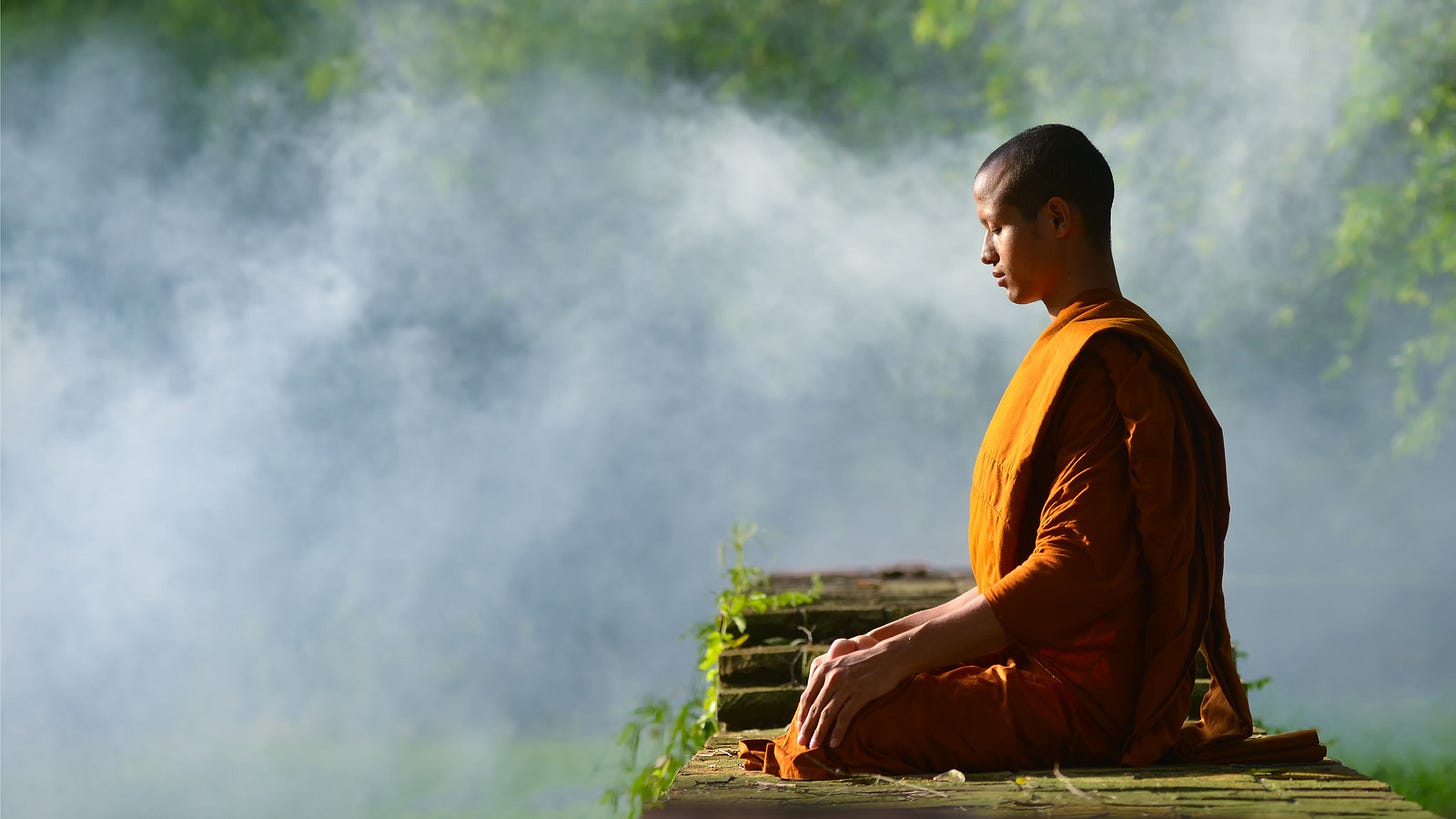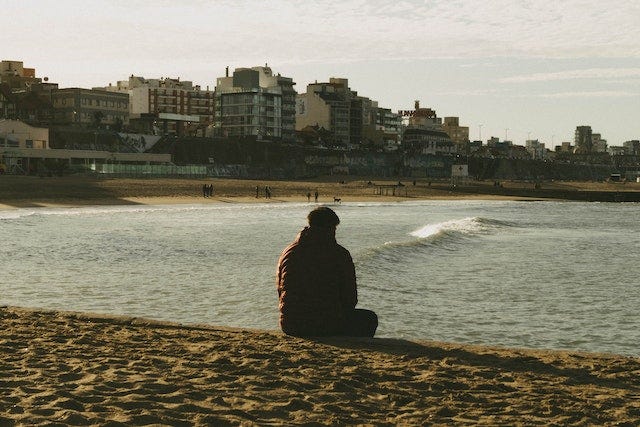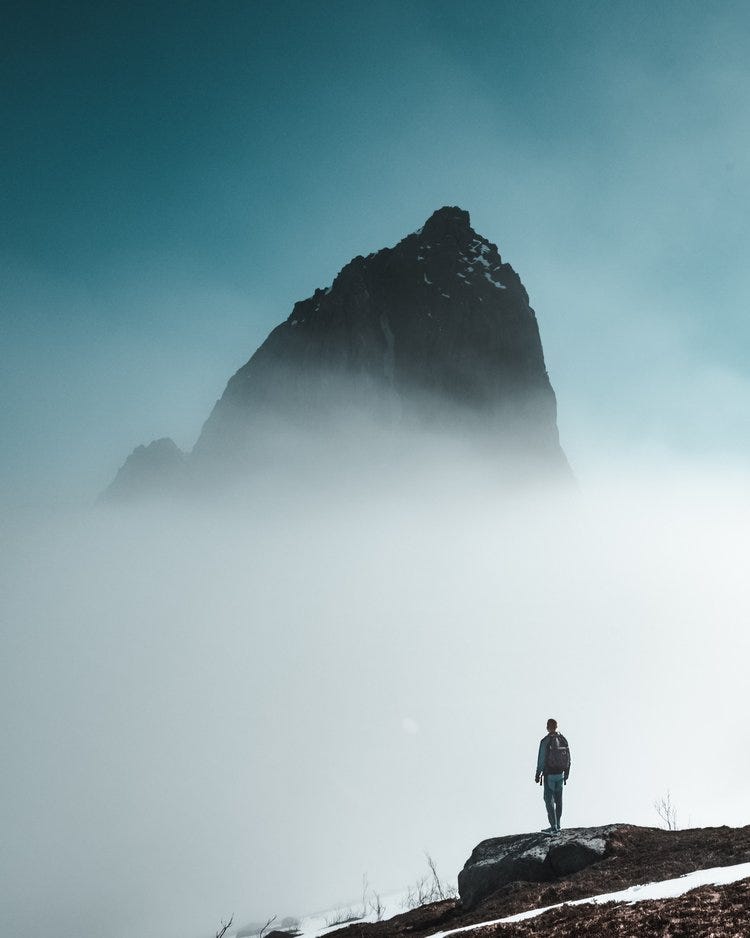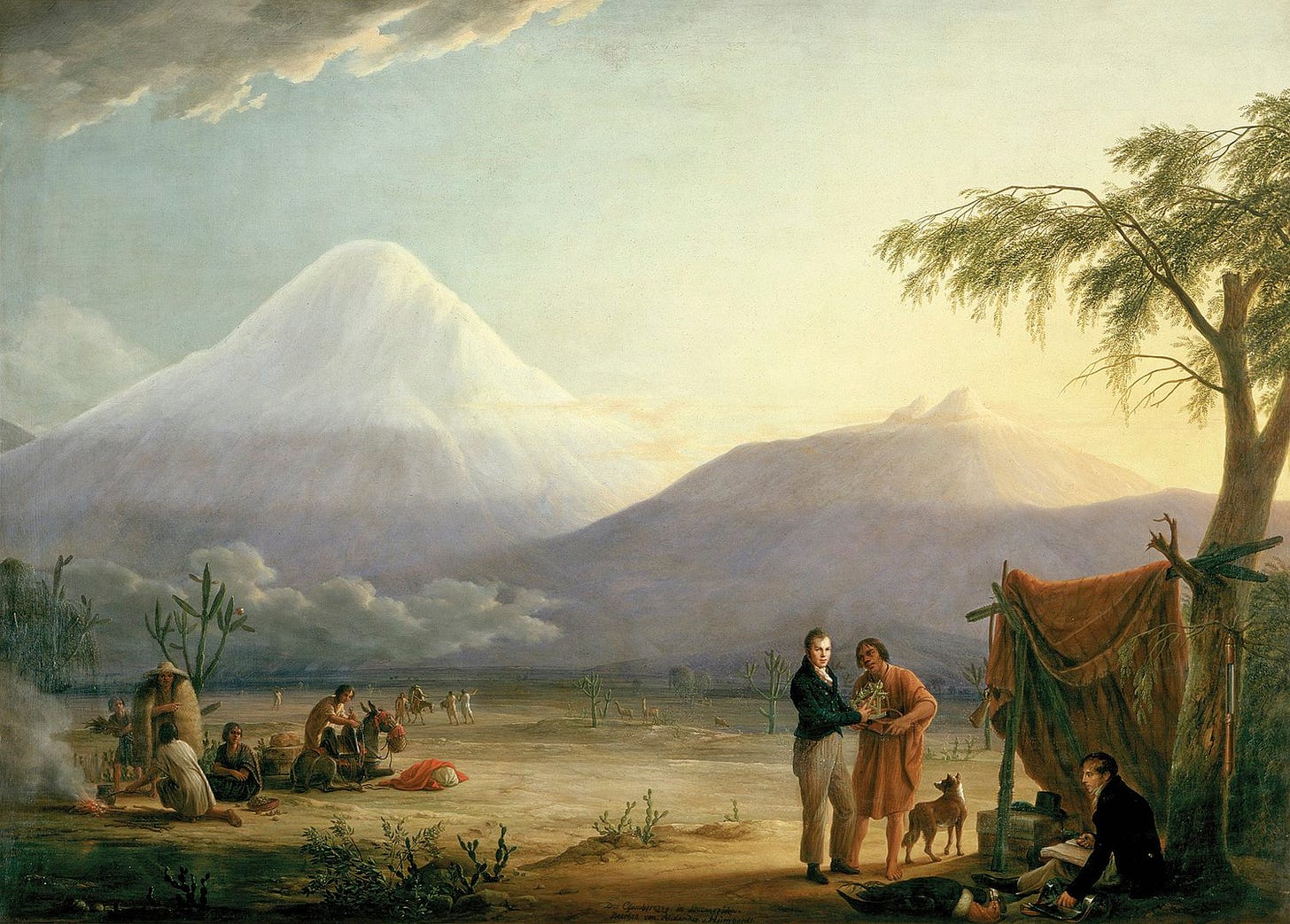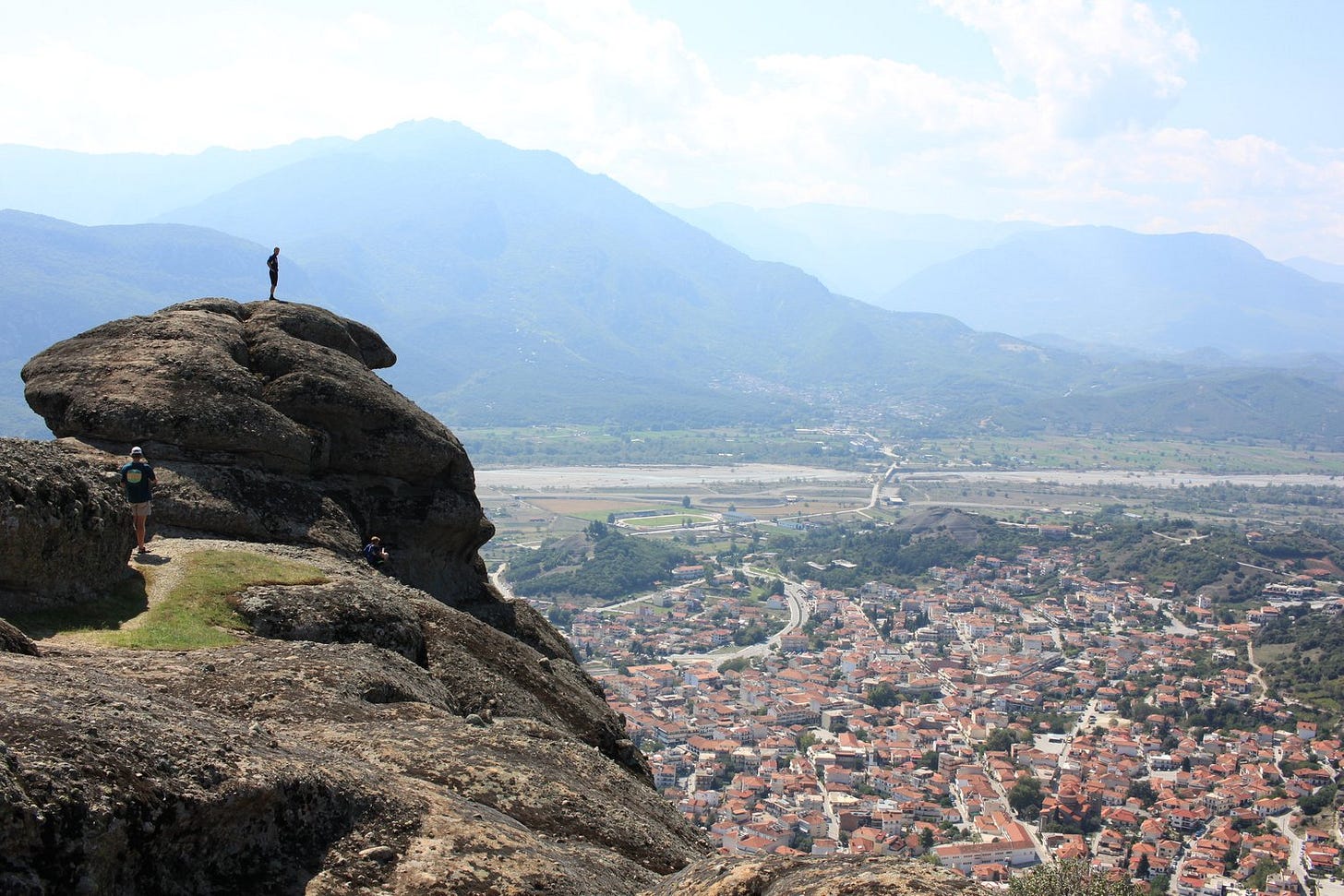Frustration First Aid
Something to bring with you when you leave home
I’ve lived in my current home for 10 months now, which is the longest I’ve ever lived anywhere independently.
Above: the zenlike patience and fortitude I have exhibited recently
There’s a phrase that gets repeated often in the medical world, and especially so around the elderly and those recovering from injuries:
“If you rest, you rust.”
In other words, if you don’t keep moving, you lose the ability to keep moving. You have to use your body, even when its difficult, even when it hurts. And miraculously, like most exercise, you find that by pushing through the pain, you get stronger, and can do more and more each week, and it hurts less and less each time. The irony is that by making ourselves uncomfortable, we make ourselves more comfortable.
But looking at my own life, it seems I’ve taken this adage to heart, and lived the words out literally. I’ve stayed in 23 different homes in the past 13 years, not including couches I’ve surfed, or hostels/hotels/bnbs I’ve stayed in long-term.
I’ve been restless, constantly going from place to place to place. Even when I lived in the same city for multiple years, I moved to a new home within that city every 6 months or so. My life has been like the movie Speed, where Keanu Reeves and Sandra Bullock have to keep driving a bus loaded with passengers at 50mph, or else it will explode.
So last week, when we looked at the potential for Virtual Reality to eliminate Travel, the implications of that possibility are very, very relevant for me. But I when I say Travel, I don’t just mean journeying to another country on vacation, nor completely uprooting like I do, but also just leaving your familiar neighborhood to briefly visit another one.
The question arises: Why should we leave the comfort of our homes?
Last week, we also looked at a quote that described something that I call “the Paradox of Travel”—namely, that we are overloaded by information about where to travel and what to do when we get there, but we never talk about why we should travel in the first place.
Because it seems implicitly assumed in our culture that Travel is something we should all do, and that we should love doing, whether we actually want to do it or not. But this has not been the case for most of history, and it appears—ominously—that it may not be the case in the future.
The question of “why travel?” may seem unnecessarily abstract and philosophical, but the stakes are actually quite high, and only getting higher. If we don’t have a good reason for traveling, we will most likely end up miserable, despite our best intentions to have an enjoyable experience.
And as those negative experiences accumulate, we will have more resistance to leaving the home. And as the entertainment options available in our homes continue to multiply, and the technology that serves up those options continues to develop (e.g. Virtual Reality), it will become increasingly more difficult to pull ourselves away from our screens and out of our homes. And then we will rest, and then we will rust.
Without a good enough reason, we will always be pulled back into our chairs by the gravity of comfort and safety and pleasure. Moreover, if we just assume that Travel is inherently valuable, we will be greatly disappointed when we find that the same old problems face us, even in newer or more beautiful environments.
The quote last week that introduced the Paradox of Travel was from a book by Alain de Botton, called The Art of Travel, in which he explores the question of “why” we should travel.
Early on in the book, he describes his own experience taking a vacation to an exotic destination. During the trip, he and his girlfriend get into a big argument, and he is left sitting there on the beach, wondering how all his plans had gone so wrong, how this fantastic getaway had turned into merely a more scenic setting for yet another fight, and how that fight had compounded all the other frustrations he had been experiencing so far, turning the whole trip into a critical failure.
But the moment of despair was worth it, because he learned something valuable from his reflections. He realized that all the old problems that attended him back home—the very things he had hoped to escape while on vacation—were still with him, and were, in fact, inescapable. Even in a beautiful foreign country, he still had to wait in line, he still had to sweat in the heat, he still got hungry, and tired, and thirsty; he still had to swat flies, and deal with an upset stomach, and sleep poorly, and disagree with his loved one, and get into arguments.
As he continued to think about this, de Botton realized that he had never really thought about why he had booked the trip in the first place, except maybe to “get away” for a while. But get away from what? The normal troubles of our everyday lives are impossible to avoid for long. They follow us everywhere. If he was honest with himself, the only thing de Botton was getting away from were the routines and environments that made him comfortable— his own home and bed and fridge; his favorite coffee shop, his local grocery, his office, his neighborhood park, etc.
And so he embarked on a quest to find some better reasons for why to travel. On that venture, he analyzed the experiences of many historical figures, as well as his own life, and he discovered several powerful reasons.
The beauty of these reasons is twofold: first, they compelling enough to drive us out of our homes and into the unknown, to get us moving and exploring and learning. But, more importantly, they are also capable of sustaining us through the discomforts of being away from those homes for extended periods of time.
In short, these reasons are what I call Frustration First Aid—they help us cope with the annoyances that plague us in everyday life, by getting us outside and away from them, to be introduced to new people and different places, to change our minds. And they also help us cope with those inevitable irritations that crop up even, and especially, outside of our normal spheres.
Throughout the rest of this essay, I’m going to introduce quotes from The Art of Travel, and I’ll be using them to paraphrase and reinterpret what I think are the main reasons from the book. But I want you to be thinking about your own experiences of travel— not only of visiting a foreign place, but even just leaving your familiar neighborhood and going somewhere new.
How do the following reasons accord with your own experience of Travel? And are there others which are not mentioned?
1. Beauty
“Passing [the park] one evening during a downpour, I recalled how, in the intense heat of the previous summer, I had stretched out on the ground and let my bare feet slip out of my shoes to caress the grass, and how this direct contact with the earth had brought with it a sense of freedom and expansiveness, summer breaking down the usual boundaries between indoors and out and allowing me to feel as much at home in the world as in my own bedroom.
But now the park was foreign once more, the grass a forbidding arena in the incessant rain. Any sadness I might have felt, any suspicion that happiness or understanding was unattainable, seemed to find ready encouragement in the sodden dark-red brick buildings and low skies tinged orange by the city’s streetlights.”
The park outside de Botton’s home was completely changed by the seasons: in summer, it was a place of expansiveness and freedom and pleasure. In the winter, it was drab and deary and depressing. The solution? Leave home. Go somewhere else.
Sometimes we travel simply for better weather. We don’t like to admit it, but if we are honest with ourselves, our environment has a huge impact on our minds—in our thinking and our moods and our energy levels. This is a concept de Botton explores even further in his other book, The Architecture of Happiness.
“An ugly room can coagulate any loose suspicions as to the incompleteness of life, while a sun-lit one set with honey-coloured limestone tiles can lend support to whatever is most hopeful within us. Belief in the significance of architecture is premised on the notion that we are, for better or for worse, different people in different places–and on the conviction that it is architecture’s task to render vivid to us who we might ideally be.”
It doesn’t just have be the weather; sometimes we travel to see beauty in architecture that is different from our own. One part of town may have old homes with large lawns, another may have street art and food trucks, another may have sexy new shops and stores and restaurants and bars, another may have museums and botanical gardens and art galleries. Another country has all this diversity on steroids—different materials of construction, different eras of development, different values reflected in their design and usage and zoning.
Perhaps this is one of the main reasons I have been so restless—I thought I just needed to find a better place to live, one where the grass was greener, the weather better, the buildings prettier, the people friendlier. But, as we saw earlier, no matter how beautiful our surroundings, it won’t change the fundamentally human problems that are faced everyone everywhere. Sure, it can help our attitude and elevate our mood, and sometimes this is all we need to begin the process of solving those problems. Which is something we will look at in the next reason.
So, reason #1: We travel to experience and be inspired by Beauty, either in better (or different) climates, intriguing architecture, fine dining, or the like.
Above: that’s me and Will Mannon visiting Milan
2. Change
“Journeys are the midwives of thought. Few places are more conducive to internal conversations than moving planes, ships or trains. There is an almost quaint correlation between what is before our eyes and the thoughts we are able to have in our heads: large thoughts at times requiring large views, and new thoughts, new places.”
Sometimes we just need to see something new. Sometimes we just need to be somewhere new. I think this is a subtly powerful point about Travel: by definition, it is about changing our routine and our environment. Habits are very useful in that they enable us to commit to our priorities and make consistent progress in them. But they are also a double-edged sword in that they can lock us into the same old patterns, which often breeds boredom and stagnation. When we need to shake things up, Michael Pollan would recommend psychedelics, but de Botton would simply suggest Travel.
And we don’t even have to actually go anywhere new. We can even just be in the presence of those who are going—in places of transit such as train stations, bus stops, airports, and roadside cafes. Even if you aren’t embarking on a journey yourself, just being in this kind of environment is often invigorating, and de Botton recommends visiting them just for the sake of the electric atmosphere there inherently provide, with the opportunities they implicitly suggest:
“[Traveling places] suggest with what ease our seemingly entrenched lives might be altered were we simply to walk down a corridor and onto a craft that in a few hours would land us in a place of which we had no memories and where no one knew our name.”
That kind of opportunity is wildly fantastic—to walk down a hallway and traverse a portal to another world, another life. It’s possible, but for most of us, unrealistic. But it only takes a bit of imagination to consider how our lives could be completely different. And these environments are often very conducive to that type of thinking, which help us to make the changes necessary to transform our lives back at home.
Perhaps this is another reason for my wanderings—seeking to change myself. Einstein said, “The significant problems we have cannot be solved at the same level of thinking with which we created them.” And I’ve learned countless lessons from my travels—met new people who had completely different worldviews and values and priorities. My mind has been greatly enlarged by these experiences. But I had to apply those new ideas somewhere; the exposure alone was not sufficient.
So reason #2: We can travel to change our environment, which may help us change ourselves.
3. Resonance
“In the more fugitive, trivial association of the word exotic, the charm of a foreign place arises from the simple idea of novelty and change—from finding camels where at home there are horses, for example, or unadorned apartment buildings where at home there are pillared ones.
But there may be a more profound pleasure as well: we may value foreign elements not only because they are new but because they seem to accord more faithfully with our identity and commitments than anything our homeland can provide.”
There’s an irony sometimes that when traveling we find that “people are all alike, everywhere.” Or as they say in Asia “same same, but different.” In a place that is completely foreign to everything we know, we sometimes find people who are more in harmony with us than anyone at home could ever be.
de Botton tells the story of a traveler who was always uneasy and uncomfortable in his home—until he left. In the 1800s, novelist Gustave Flaubert was a member of the French aristocracy, and he always felt out of place among his peers who were vain, egotistical, and superficial. When Flaubert left France for the undeveloped nation of Egypt, he finally felt at peace. He immediately sympathisized with the culture, which was more down-to-earth and more authentic, even if it was more vulgar:
Why did Flaubert so admire the camel? Because he identified with its stoicism and ungainliness. He was touched by its sad expression and its combination of awkwardness and fatalistic resilience. The people of Egypt seemed to share some of the camel’s qualities, exhibiting a silent strength and humility that contrasted with the bourgeois arrogance of Flaubert’s own Norman neighbours.
Above: hehehe
Flaubert was simultaneously shocked and soothed by the strangeness of the different culture. Ultimately, he identified a deep spiritual resonance between the Egyptians and his own soul. So he decided to move there.
Even if he hadn’t relocated, the simple realization that there were other people in the world that were like him was the greatest discovery he ever made. He could have returned to France secure in the knowledge that he was not alone in the world—there were others who shared his disdain for the frivolous attitudes of the aristocracy. He could emulate the Egyptian people’s authenticty and bluntness, and be true to himself.
I’ve had many similar experiences during my roamings.
In south Texas, where my dad’s family lives, people are hard-working, genuine, and polite. They’re not too busy to chat with you.
In San Francisco, I met people who love technology, video games, and startups. They are always excited about the next big thing.
In Italy, I met people who appreciated slow and deliberate (and delicious) meals with family and friends. Cooking is not a chore, but a pastime.
In Mexico, I met people who are content with what they have, no matter how little. They would rather spend more time with family than buy more things.
In Colorado, I’ve met people who are desperate to be outside as much as possible. They will walk in the rain, ski in the snow, hike in the heat.
So reason #3: We can travel to learn about other cultures, and possibly find those which resonate with our essential character, making us feel at home no matter where we ultimately live.
4. Grounding
“The behaviour of others and our own flaws are prone to leave us feeling small. Humiliation is a perpetual risk in the world of men. It is not unusual for our will to be defied and our wishes frustrated. Sublime landscapes do not therefore introduce us to our inadequacy; rather, to touch on the crux of their appeal, they allow us to conceive of a familiar inadequacy in a new and more helpful way.
Sublime places repeat in grand terms a lesson that ordinary life typically introduces viciously: that the universe is mightier than we are, that we are frail and temporary and have no alternative but to accept limitations on our will; that we must bow to necessities greater than ourselves. This is the lesson written into the stones of the desert and the ice fields of the poles. So grandly is it written there that we may come away from such places not crushed but inspired by what lies beyond us, privileged to be subject to such majestic necessities.”
When things get in our way and prevent us from doing what we want, we have two responses:
Get frustrated and complain
Become silent and sit in awe
But the type of response depends on the nature of the obstacle in our way:
A petty object (such as pebble that causes us to stub our toe), or a petty person (such as an callous bureaucrat) usually elicits the first response.
A noble object (such a tremendous mountain), or a noble person (such as a selfless servant) will often elicit the second response.
Nature is undoubtedly of the second type. It is massive and elegant and dignified. If we allow it, Nature often brings us back to ourselves, enabling us to experience a moment of serene acceptance of our (small) place in the universe. We are not God, we did not make this place, we did not make ourselves, and we certaintly did not make other people.
In light of this truth, our smallness is not necessarily a bad thing, but simply a matter of fact. This can be reassuring when we remember that there are forces bigger than us that move the world and the people in it. We are not in control, and that’s ok. We don’t get to decide if things go according to plans our not. And moreover, our “big” problems that cause us so much stress are really not that important in the grand scheme of things. They become almost imperceptible in comparison to the primeval forces of nature.
Knowing this in theory, in our minds, is one thing, but somehow, getting outside and into Nature somehow brings this truth into our hearts, into our skin, into our very fingers and toes that are touching the dirt. Nature helps us get back down to earth, keeping us grounded.
Personally, I have to go on a hike at least once a week or else I go a bit crazy. I have to look at trees, or flowers, or pastures. I don’t know what it is. Maybe it’s just something in my DNA from thousands of generations past, but it feel reassured when I see green. Perhaps that’s why I’ve been able to stay in Boulder, Colorado for 10 months—there are endless hikes available to me in my backyard, and even more (if that’s possible) within a two hour drive.
So reason #4: We can travel to reconnect with Nature, which overwhelms us in a comforting way, helping us to get grounded.
5. Quest
“In June 1802, Humboldt climbed up what was then thought to be the highest mountain in the world…In spite of the danger, Humboldt found time to notice elements that would have passed most mortals by: ‘A butterfly was captured at a height of 15,000 feet and a fly was seen 1,600 feet higher.'
How does a person come to be interested in the exact height at which he or she sees a fly? In Humboldt's case, such curiosity was far from spontaneous: his concern had a long history.”
The legendary explorer Alexander Von Humboldt is famous for exploring the Americas, for documenting many new scientific discoveries, for developing the fields of biogeography and meteorology, and ultimately for inspiring environmentalism and ecological conservation.
de Botton explains that Humboldt had been fascinated since he was eight years old with a profound curiosity to understand the nature of the world. He was forever wondering why plants and animals vary so dramatically at in different places, at different latitudes and altitudes. And this lifelong obsession is what gave him such an attention to detail, such as the studying the height at which flies can survive.
“On descending to the base camp…Humboldt almost immediately began writing his ‘Essai sur la geographie des plantes', in which he defined the distribution of vegetation at different heights and temperatures. Flies were, he wrote excitedly, unlikely to be found above 16,600 feet.
Humboldt's excitement testifies to the importance of having the right question to ask of the world. It may mean the difference between swatting at a fly in irritation and running down a mountain to begin work on [a masterpiece].”
Humboldt’s quest to understand the world consumed his entire life, and brought him all around the planet, on many adventures, making many discoveries, and garnering many achievements.
We may not have his same fervor that drives us to travel, but we have to have some reason. Some purpose. Perhaps it is one of the above reasons, or maybe something else. Maybe you travel for your work. Maybe you travel for your art.
But when we travel without a good reason, we will likely face the same existential anguish that de Botton felt on his trip with his girlfriend. We may begin to be confused as to why we decided to leave the comforts of our home, and why we have wasted so much of our precious and expensive time and money and energy. de Botton struggled with this problem on one of his trips, and he compared himself to Humboldt:
“And I wondered, with mounting anxiety, ‘What am I supposed to do here? What am I supposed to think?’
Humboldt was never pursued by such questions. Everywhere he went, his mission was unambiguous: to discover facts and to carry out experiments towards that end.”
Nevertheless, de Botton concludes that we can come up with our own purpose. Ultimately, he decided to write this book, which I have found (and I hope you have also found) incredibly helpful and elucidating. Perhaps, as you consider your reasons for travel, you will come up with your own “question to ask of the world.”
For me, my purpose is to help people, both physically and metaphysically. On the individual level, I seek to help people through emergency medicine, keeping their bodies and minds working so that they can be healthy. On the collective level, I seek to understand and analyze human nature, and discuss it with my friends. Primarily, The Apocalypse is how I do that. So thank you for reading and engaging.
Every time I travel, it’s an opportunity for me to learn more about humanity, about how people live and work and think and love. It’s a chance for me to study and observe and reflect. So even when I’m stuck in a terrible situation in a place far from home, far from comfort, far from safety, far from pleasure, there’s something valuable in it for me.
So reason #5: We can travel to accomplish a quest of our own choosing.
6. Connection
But there's one final reason I want to mention, the main reason that many of us travel, which de Botton neglected in his book.
Often we travel not to go see someplace but someone. In fact, it really doesn't matter where that person is. They could be in an accessible location like New York City or a desirable destination like Honolulu, or they could be in an absolute backwoods marshland in the middle of nowhere. We would still go see them.
Sometimes we go to see family. I recently went back home to Houston for my grandmother's funeral, and got to see my parents and my cousins and aunts and uncles.
Sometimes we go to see friends. I'm going to LA next month to meet Taylor Foreman1 for the first time in person. While I'm there, I'm going to visit Will Mannon2 and Kevin Quaranta.
Sometimes we go to see superstars. We might watch a president’s inauguration or a queen’s coronation or a musicians’s performance or a city’s celebration. Just last week there was a parade in Denver to revel in the Nuggets national championship.
So reason #6, we travel to connect with other people, whether friends, family, or complete strangers.
Conclusion
These reasons are just a few of the many that we can use to motivate ourselves to leave the comfort of our homes, and to find new experiences. And once out there, we can remind ourselves of why we left in the first place, so that we can deal with the unavoidable annoyances that will arise. These reasons are our Frustration First Aid.
In my own life, I’ve gained greatly from all my travels, but I’ve also foregone many things by constantly uprooting. Travel is not the answer to all of our problems, though it may help us in dealing with them.
These reasons are also, arguably, not experiences unique to Travel. You may be able to experience beauty by watching a documentary about nature, or a foreign country. You may be grounded by reading a biography of Mother Teresa, or appreciating the paintings of Monet. You may be able to experience change by playing a video game or reading a novel that introduces you to a completely new universe. You may be able to experience resonance by finding a community of like-minded peers through social media. You may be able to connect with friends or family through Facetime.
So in the end, what is the difference between traveling in the “real world” and traveling on the world wide web?
This is the thorny question that was raised last week, and something we will need more space to unpack. We’ll address it in the coming weeks.
Until then, what are your reasons for Travel?
Footnotes:


